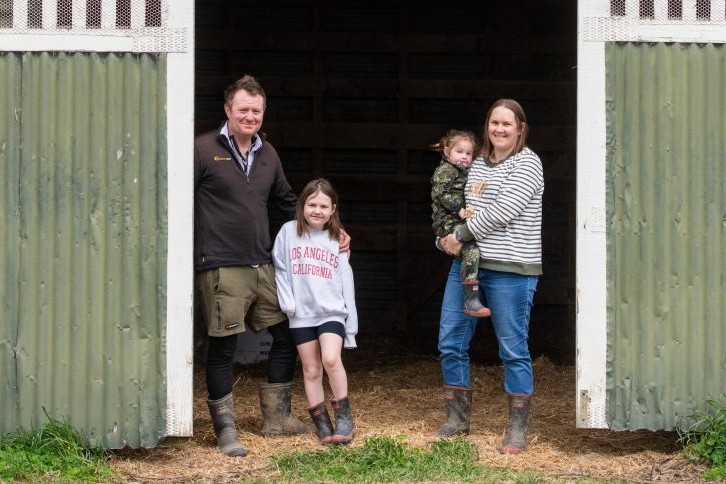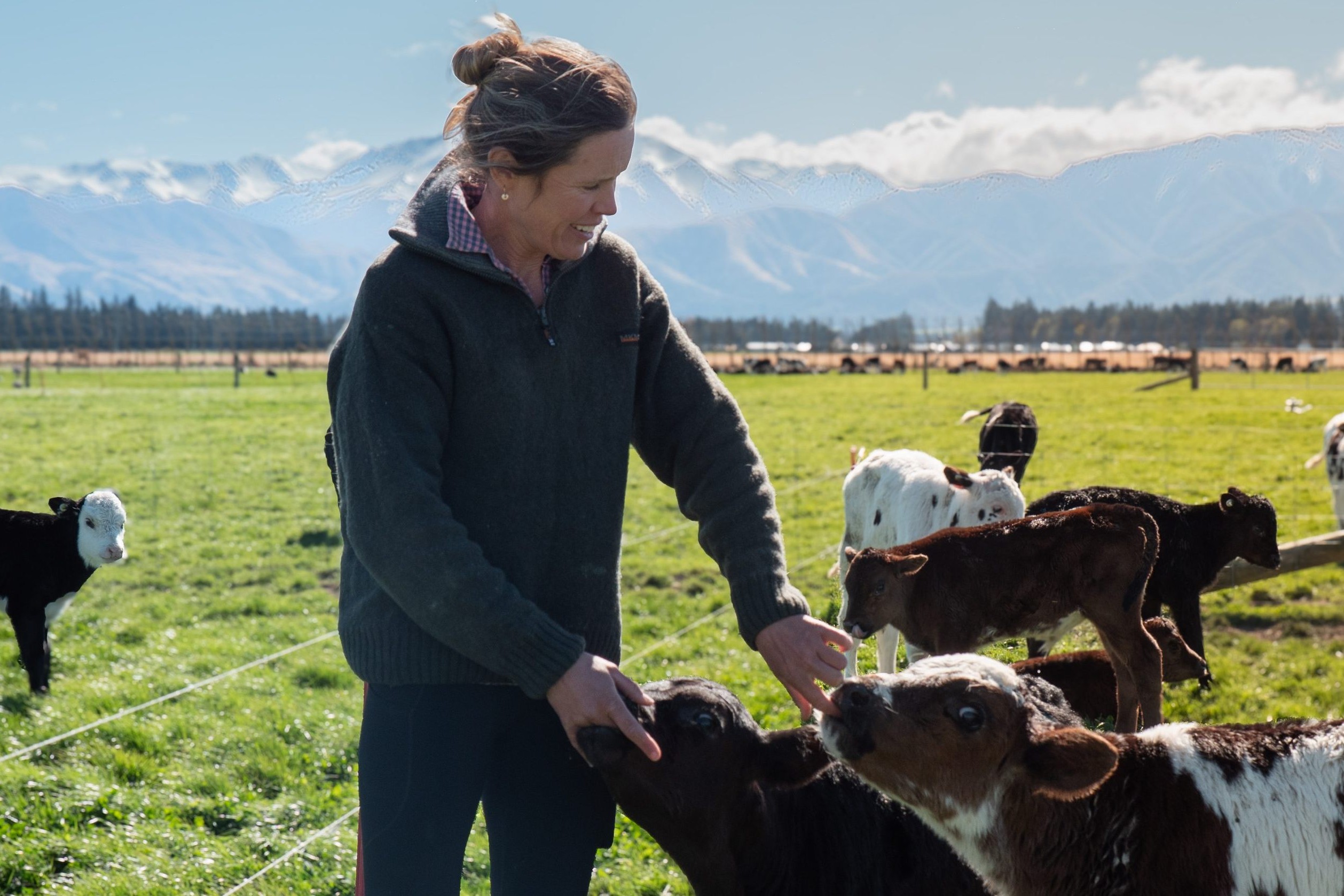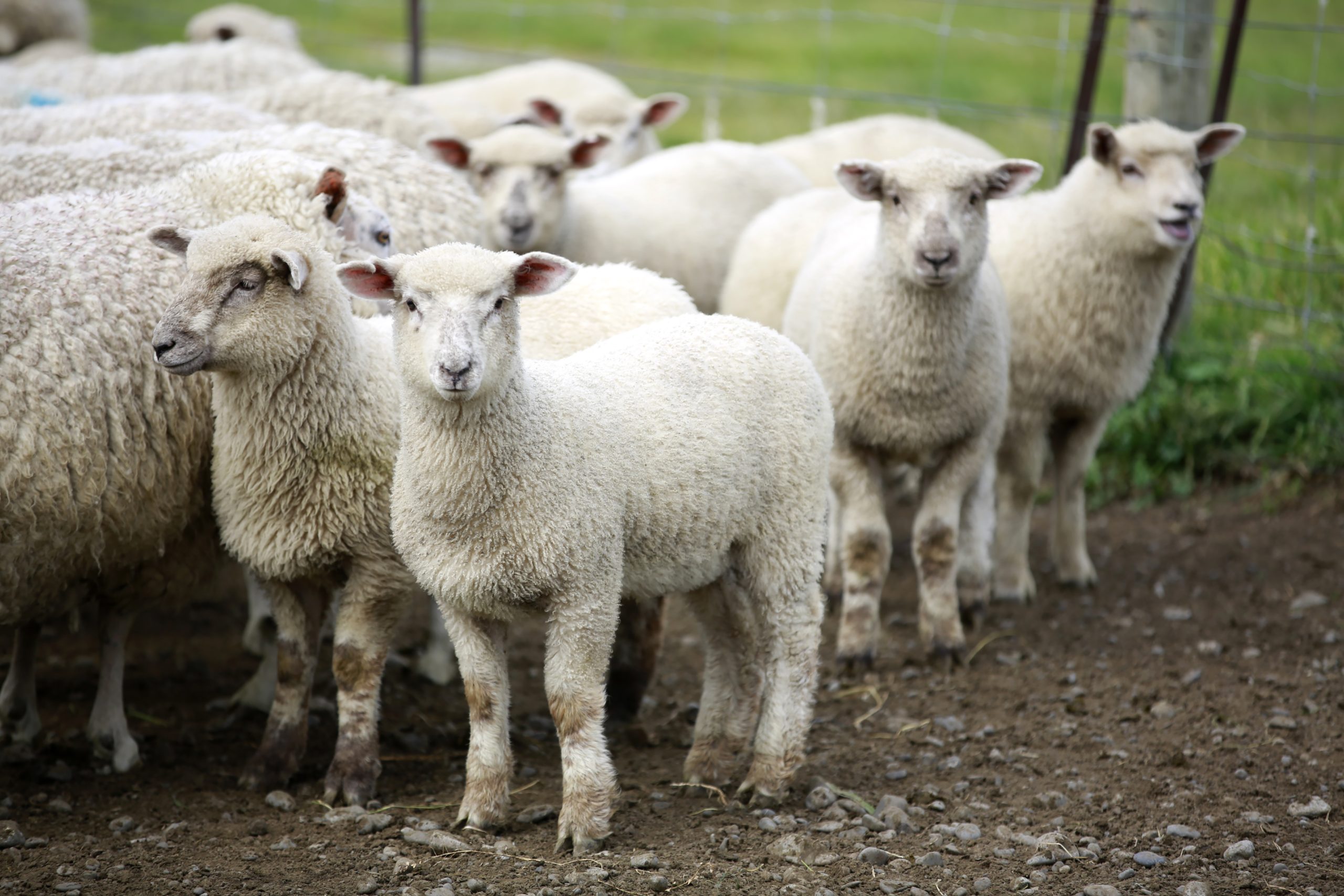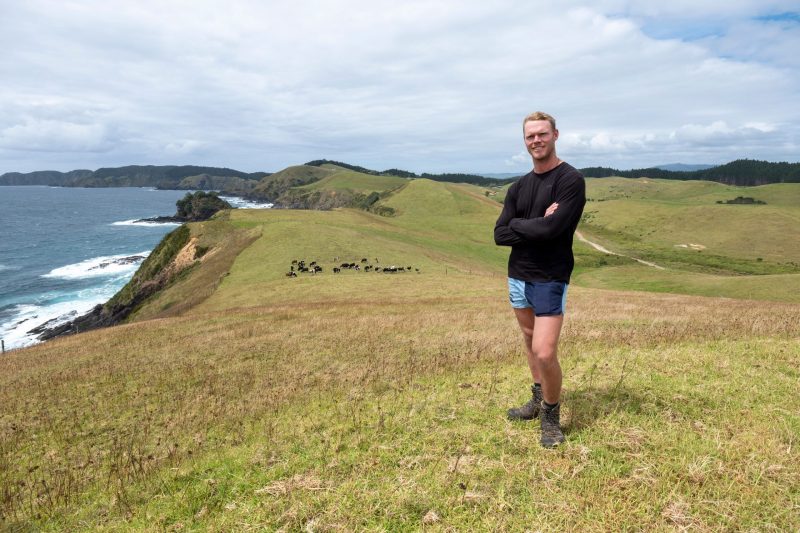Winning genes
Te Akau sheep and beef farmers Alastair and Ann Reeves were the Supreme Winners in this year’s Waikato Ballance Farm Environment Awards. Beef + Lamb New Zealand talk to them about their use of genetics to address animal health and environmental challenges, their farm system and community leadership. Photos Beef + Lamb New Zealand.
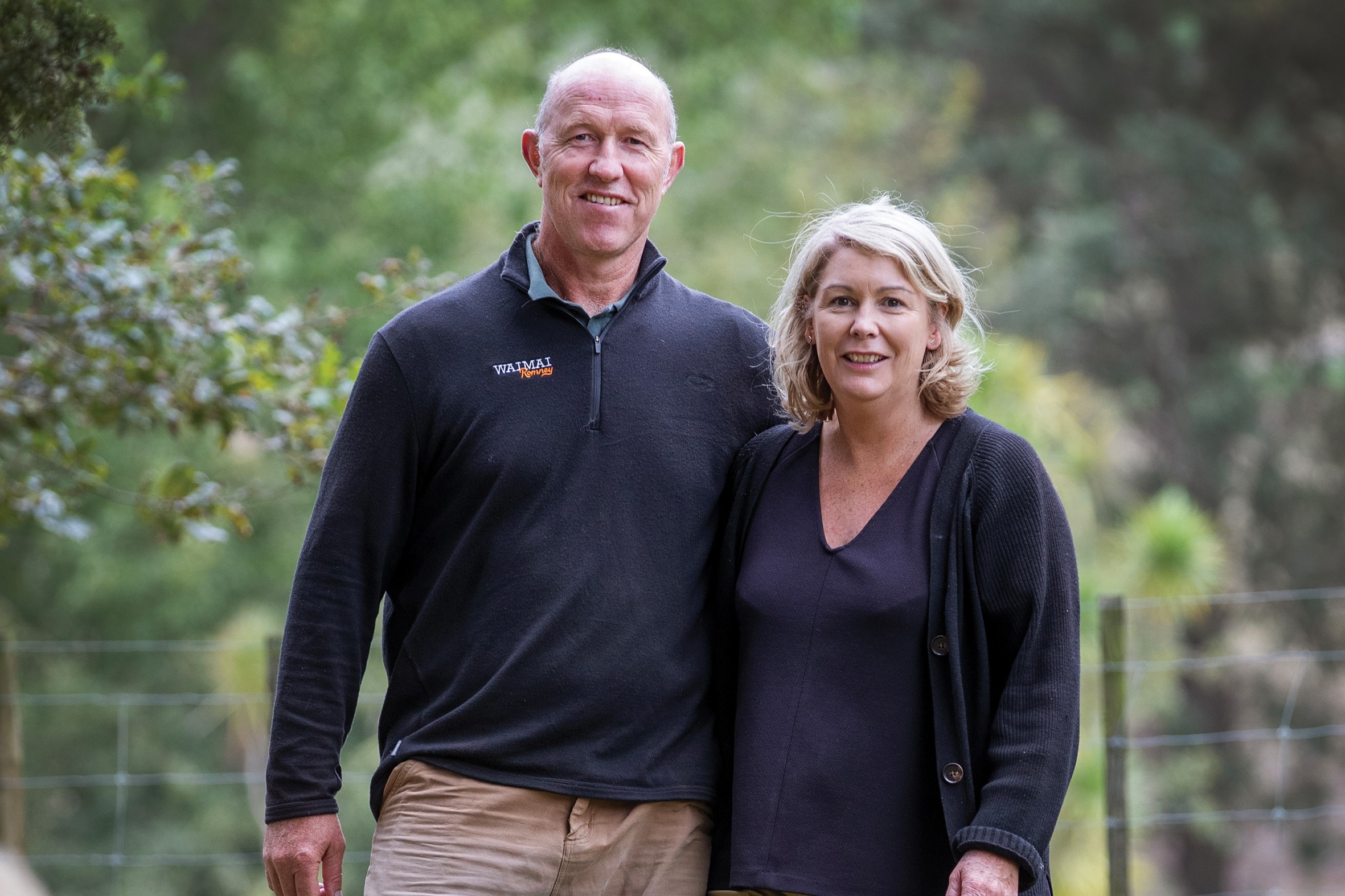
Listen on the Country-Wide Podcast:
The apple hasn’t fallen far from the tree in the Reeves family. Alastair, along with his wife Ann, are following in the tradition of Alastair’s forward-focused parents John and Helen in showing leadership within their family, their farm, their sector and their community.
The couple were the Supreme Winners in this year’s Waikato Ballance Farm Environment Awards with the judges commenting on their outstanding leadership, improved biodiversity and excellent guardianship of the land. They also won Beef + Lamb New Zealand’s Livestock Farm Award, the New Zealand Farm Environment Trust’s Biodiversity and Climate Recognition Awards and the Bayley’s People in the Primary Sector Award.
Alastair and Ann farm with the mantra that they are only borrowing the land off their children, but they are also standing on the shoulders of the three generations of Reeves that farmed their Te Akau farm before them, particularly John and Helen. Alastair describes his father as a pioneer in that he saw genetics as being a solution to a problem and began breeding facial eczema tolerant sheep over 40 years ago. This was followed closely by worm tolerance and the family hasn’t drenched any stud ewes for over 10 years, with only minimal lamb drenching. Today, Alastair and Ann run 1350 SIL registered Romney ewes which are FE Gold and Worm FEC accredited and sell 400 rams annually under the Waimai Stud prefix.
Seeing there was a perceived problem around biogenic methane, the couple began including methane in their breeding objectives four years ago. By the end of the year, they will have tested just under 1000 rams through AgResearch’s Portable Accumulation Chambers as part of the Cool Sheep Programme. “As a geneticist you have to try and look into the future because genetics does take time. Sometimes you just have to take a punt.”
The couple is already seeing a reduction in methane production, and according to their latest SIL report, 87% of their 2023 hoggets are already negative for methane. “After just four years of breeding, that’s pretty cool,” says Alastair.
The couple is even more excited about seeing a corresponding increase in productive traits in these hoggets, encapsulated in a 9% increase in their New Zealand Maternal Worth Index compared to the 13% of hoggets that are positive for methane.
“Low methane genetics are the first tool to be made available to New Zealand sheep farmers to help reduce emissions and it would be irresponsible of us not to use them.” – Alastair Reeves
They stress that they are not interested in debating climate science. But whatever route New Zealand takes, they believe they need good science to make good decisions, viable tools to help reduce emissions and a sensible system to incentivise and reward change as opposed to taxes on reduced stocking rates that lead to leakage to less carbon efficient countries. “Biogenic methane is simply a wasted gas that is of no use to the animal and having the ability to reduce methane emissions, without impacting on any productive traits, just makes sense. What if, by lowering methane emissions, we could help solve a problem rather than being the problem?”
Even if everyone was to agree that biogenic methane was not causing global warming, Alastair believes that by reducing emissions and helping to cool the planet, then that has to be a positive story for farming.
But for Alastair and Ann, it is already a positive story in their business because they are seeing production gains. Alastair believes this is due to changes in the animals’ rumen, which results in them using their food more efficiently to grow product. “And that can’t be a bad thing.”
The couple view genetics as once again being a solution to a problem, which in this case is biogenic methane emissions. “Low methane genetics are the first tool to be made available to New Zealand sheep farmers to help reduce emissions and it would be irresponsible of us not to use them.”

Ideally, they would like to be paid a premium for their low methane meat and wool, but Alastair believes it is only a matter of time before that happens and they – and their ram clients – will be well positioned to capture those premiums when they do become available. The family farm is a total of 836 hectares (689ha effective) of mixed terrain. This includes 35ha of flats, 200ha of rolling country, 219ha of medium hill and 235ha of steep hill country. The farm has been divided into land management units and stocked accordingly. Alongside their ewes and replacements, which are run on the farm’s clay soils, the Reeves farm 400 R2 bulls on the free-draining parts of the farm.
Alastair says the bulls are a simple and flexible stock class, which is important in their summer dry environment. The couple felt it was important to identify their property’s strengths and challenges and build their farm policies around those.
Tree planting has been a big part of Alastair and Ann’s tenure on the farm. Today, 10% of the property is planted in a mix of pines and redwoods (all pruned for timber), mainly at the headwaters of the three main streams that run through the farm and on their steeper country.
The three streams have been riparian fenced and every year the couple plant 1000-1500 natives to help create corridors for native birds.
The plants also act as sediment traps around steep corners and wetter parts of paddocks.
The farm has New Zealand Farm Assurance Programme (NZFAP)-Plus accreditation, and the couple is working towards a gold standard.
Alastair says they are both passionate about NZFAP- Plus as a mechanism by which farmers can tell their story. “We need to be telling our stories and NZFAP-Plus allows us to do that.
“It’s an independent assurance programme that provides confidence and certainty to our customers that the food and fibre we produce is authentic and safe. Collectively, it provides assurances around integrity, traceability, animal health and welfare, people, farm and natural resources and biosecurity.”
Part of the couple’s story is their leadership with their community and catchment.
In 2002, they were part of a group that instigated the West Coast Possum control scheme. Working in conjunction with the Waikato Regional Council, this scheme now encompasses 155,000ha and has reduced possum numbers to under 5% residual trap catch. Reducing possum numbers has enabled the Reeves to plant four orchards around the farm, as well as an orchard at the Te Akau school. It has also greatly improved the biodiversity of the area. “Every child should have the opportunity to pick fruit,” says Alastair.
Alastair and Ann were also instrumental in setting up the West Waikato Coastal Community Catchment Group, which Alastair now co-chairs. The Group’s vision is to facilitate and promote a thriving and resilient community.
To help address the labour shortage problem in the sheep and beef industry, the Reeves are part of the Growing Future Farmers programme which offers young people the opportunity to work on a farm and receive on-farm training. It is a two-year, zero fees programme that offers students NZQA-approved, supported on-farm training and development.
During their training, students complete primary industries level 2 and 3, pre-employment skills level 3, Certificate in Agriculture Level 3 and Meat and or Fibre strand. Alastair describes feeling both proud and emotional when they were announced as Supreme Award winners at the Waikato Ballance Farm Environment Awards. Ann says entering the awards gave them the opportunity to look back at where they have come from and appreciate where they are today.
- B+LNZ is proud to support the Ballance Farm Environment Awards as a way to showcase good practice and help tell farmers’ stories to the wider public.

